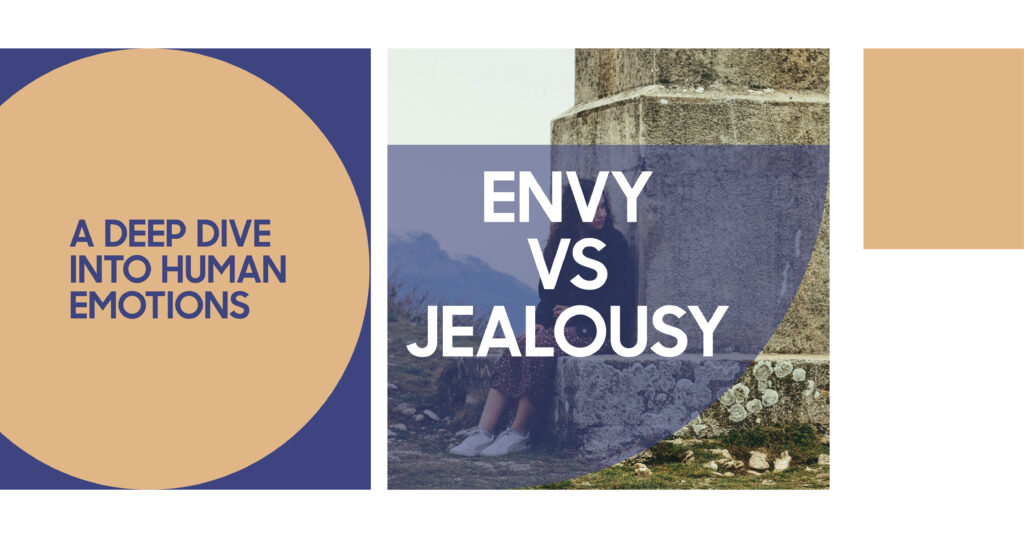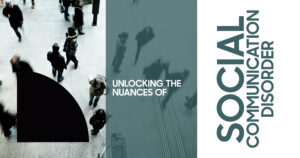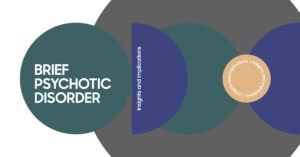Everyone has been envious and jealous at some point – you feel sad because your classmate studies better than you, you feel invisible when comparing the successes of your colleague to your accomplishments, and you feel inadequate when your partner seems distant from you and potentially interested in someone else. But what is the difference between envy and jealousy? And how can these emotions influence your mental well-being?
Let us determine what jealousy and envy really are, how they manifest in real life, and how they impact your mental wellness.
Definitions of Envy and Jealousy
Envy can be defined as an unpleasant feeling you experience when seeing someone enjoying the things you would want to enjoy yourself. Jealousy refers to unhappiness and anger you feel when you suspect a person you are close with may be interested in someone else’s company, whether it is your partner, family member, or friend. Both feelings are rooted in insecurity and emotional dysregulation and can cause major discomfort to the individual who experiences them and to the people around them.
Envy vs jealousy – what is the difference? You are envious of someone because you want to accomplish the same things or be praised for your achievements, while you are jealous of losing what you already have – the latter mostly refers to romantic relationships. While these words are often used interchangeably, this is not exactly correct – jealousy implies possessiveness, while envy is more about resentment and bitterness you exhibit openly or in secret.
The Psychology Behind Envy
Despite being a very natural emotion, envy is a toxic feeling. Considering the never-ending comparisons you may be forced to live with, and social media that makes you feel as if you lack something, it is hard not to feel envy every day. It gets even more complicated if you are struggling with low self-esteem, a coworker of yours was promoted instead of you, or your efforts have remained largely unnoticed.
Still, envy can be either malicious or benign – the former will make you feel the need to undermine and downplay the achievements of other people while the latter serves as a source of motivation and inspiration. Even if you feel envious, try to use it to replenish your energy and strive to do better – your goal is to be in competition with the previous versions of yourself as you move at your own pace instead of constantly comparing yourself to other people whose stories are completely different from yours.
How Jealousy Manifests in Relationships
Let us take a look at how jealousy can ruin your relationship dynamics and fuel disconnection:
| Consequence of Jealousy | Description |
| Passive-Aggressive Behavior | The person’s behavioral patterns are hard to notice and define at first but soon their choices become impossible to ignore. From subtle digs at their spouse and using guilt to get what they want to lasting silent treatment and complaints that do not have any merit – this negativity will turn your relationship into a toxic one quickly |
| Control and Coercion | A jealous person will attempt to make decisions on behalf of their partner – they will limit their social activities, check their social media accounts, and force the other person to apologize when they are no longer the center of their attention |
| Manipulation | There are endless manipulation tactics for a jealous individual to try. Making the other person insecure and anxious, creating an atmosphere of isolation and fear, and undermining their authority and autonomy through abuse and gaslighting |
| Mental Health Issues | Jealousy takes a toll on both partners even when one of them is clearly not at fault – the jealous individual is anxious and depressed because they keep worrying their partner is cheating on them while the other person is anxious and depressed because they cannot prove their innocence and are constantly questioned |
| Abuse and Violence | Sadly, jealousy is one of the main causes of domestic violence – more and more people are forced to deal with the emotional and physical aggressiveness of their partners, and it may start with an occasional and random remark said in a jealous tone |
Cultural Perspectives on Envy and Jealousy
Envy vs jealousy – is there a difference across cultures? The answer is yes – whether you grow up in a certain society or you develop as an adult in a specific location, the concepts of jealousy and envy will vary from person to person based on where they are from:
- Individualistic cultures that put emphasis on the status of the person and their achievements will foster envy in young kids and teenagers, and these feelings may last into adulthood. On the contrary, people raised in collectivist cultures where the avoidance of conflict, cohesion, and duty are the primary values will be less envious of their more successful peers.

- When it comes to jealousy, it is important to look at specific cultures where jealousy and potential infidelity are considered serious offenses and may be grounds for divorce or social condemnation. For instance, in countries where women are controlled by their parents and husbands, it is more likely for a female spouse to be a victim of jealousy, and the male partner will not even face any consequences for any abnormal behavior.
Effects of Envy and Jealousy on Mental Health
Apart from the negativity you have to handle when you are affected by envy and jealousy, there are long-term consequences of these feelings you should be mindful of:
| Adverse Effect | Description |
| Cumulative Stress | It does not matter if you feel envy or jealousy or if you are directly affected by these emotions – you will find it hard to focus on your daily responsibilities when this negativity steals your energy and causes mental fatigue |
| Ruptured Relationships | If you cannot be happy for a friend when they are successful or feel unable to keep your jealousy at bay when interacting with a partner, your interpersonal relationships will be strained at best and broken irreparably at worst |
| Social Isolation | Some people are forced to be lonely and isolated due to toxic behavioral patterns they have exhibited while others choose to withdraw from society because they cannot control feelings of jealousy and envy |
| Increased Risks of Mental Disorders | It is more likely you will be diagnosed with a mood disorder or a mental health condition if you were under stress caused by envy or jealousy aimed at you or felt by you |
Learn Strategies to Manage Envy and Jealousy at Treat Mental Health
Whether you and your partner need help to overcome jealousy and envy or you are no longer with the person who made you feel inferior yet you feel isolated and stressed because of the abuse you went through, you should discuss your concerns with a mental health professional.
Our team at Treat Mental Health knows how to guide people who may have been burned in the past but are willing to learn from their mistakes and open their hearts to new opportunities – reach out to us today, and together we can deal with the problems that contribute to your stress.

FAQs
What is the difference between envy and jealousy in terms of emotional envy and jealous behavior?
Envy is usually directed at a particular person who is successful, rich, or loved by other people – despite the toxicity of this feeling, it rarely leads to any negative consequences for the individual who is envied. Jealous behavior, on the other hand, is fueled by possessiveness and aggression – you are suspicious of the other person, you make accusations that may not be based in reality, and you sabotage your relationship with them to the detriment of their mental health.
How do synonyms for envy and jealousy help in understanding their meanings?
When you are talking about the concepts of jealousy and envy, you can be more clear and direct if you use different words – resentful, suspicious, insecure, hateful, bitter, spiteful, and greedy are just a few terms that can allow you to express yourself better especially if your goal is to make another person understand how you feel.
Can you define envy meaning and jealousy meaning with examples of envious feelings?
Jealousy and envy are often intertwined – for instance, you may feel envy towards a friend who has been cordial with your spouse lately which also makes you feel jealous. Jealousy frequently includes envy and even begins with it so you should concentrate on recognizing this emotion first to heal yourself.
What are some common triggers for envious feelings and jealous behavior?
When you see another person celebrated for their successes and appreciated for their personal attributes, when others keep comparing your spouse, friend, or family member to you in an unflattering way, or when your past experiences including attachment issues and childhood trauma manifest as you try to navigate the emotions of today, it is hard to escape from jealousy and envy.
How can identifying envy synonyms and jealousy synonyms assist in managing these emotions?
If the emotions most commonly called “envy” and “jealousy” are further expanded on and you are using other words to explain your feelings to yourself, your partner, friend, or therapist, you can increase your self-awareness, figure out what triggered this negativity, and understand how to move forward without hurting yourself and others.








